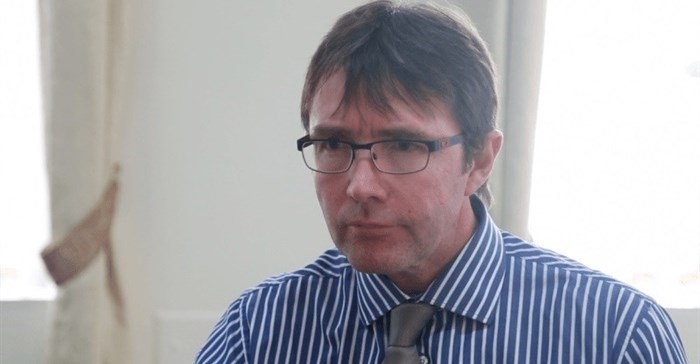South African mining is in crisis, but there are solutions to ‘restoring the dream' of a prosperous, growing, and transformed the sector.
In addition, key governance and policy challenges in South Africa have eroded business and investor confidence, said Roger Baxter, Chamber of Mines CEO at the Africa DownUnder Conference in Perth, Australia.

Roger Baxter, CEO: Chamber of Mines
In effect, he noted, “policy and regulatory uncertainty have frozen new investment in the sector. It is extremely difficult to get any company investment committee to approve any new greenfields project in South Africa today.
“Real mining GDP in 2016 of R226bn was less than the R242bn reported in 1994. Real mining fixed investment has shrunk over the past two years, with large parts of the industry continuing to report losses.”
Scant attention
He added that it was very concerning that the minister of mineral resources paid scant attention to this crisis in his conference presentation the previous day, but that perhaps this is because the department of mineral resources (DMR) has provided no assistance to help the industry through the crisis.
“The industry is very surprised that the minister claims to have received positive feedback from any investor on the DMR’s charter, and the state of the industry. This has not been the industry’s experience, and it is the industry that engages with investors and raise capital on a regular basis. The economic opportunity cost of the failure to get the policy, legislative, administrative and operating environment right to promote investment, growth, transformation and job creation in South African mining is material,” Baxter said.
Some of the key uncertainties being perpetuated by the DMR include:
- Uncertainty regarding the ownership element of the Mining Charter.
- Uncertainty created by the DMR’s unilaterally developed and imposed Reviewed Mining Charter.
- Uncertainty regarding the finalisation of the MPRDA Amendment Bill which is incomplete after being published nearly five years ago (remaining uncertainty on section 11 approvals).
Uncertainty regarding the minister’s proposed section 49 moratorium on new right and section 11 applications.- Uncertainty created by double financial provision for environmental rehabilitation.
Baxter stated that the chamber and its members have lost confidence in the minister and in his leadership of the DMR. “Significant corruption allegations against the minister and the DMR have not been cleared and the proposed judicial commission of enquiry into state capture has not been established.
“The industry does not believe that the approach adopted by the DMR is serving the national interest of the country and the negative impacts of the unilaterally imposed Reviewed Mining Charter, the proposed section 49 rights moratorium, the non-resolution of the charter ownership issues, imposition of inappropriate section 54 safety stoppages, for example, have created a major crisis for the sector. The industry is of the firm view that the DMR’s Charter is designed to benefit a select few at the expense of the whole country.”
But, to get mining back on track requires policy and regulatory certainty, and government oversight that recognises mining’s unique characteristics, and that:
- mining is a high risk industry, with long lead times from exploration through to mine development and ultimately closure;
- mining is very capital intensive, with a large portion of capital being spent in development of the mine;
- the sector is exposed to cyclical commodity markets, and is generally a 'price-taker' that cannot pass on cost increases to the final consumer; and
- mining is geographically determined, and requires access to cost competitive and efficient infrastructure.
“To encourage investment into mining, policies need to recognise the characteristics of mining and help reduce the risks of investment in long term projects. The Chamber remains committed to finding workable solutions in the national interest. This is a resilient industry. Its stakeholders – including business, government, unions, communities and civil society – have reached a precipice in the past, but then realised that mutually agreeable solutions are possible. But, this will require ethical leadership and a focus on the national interest by all parties,” he concluded.






































